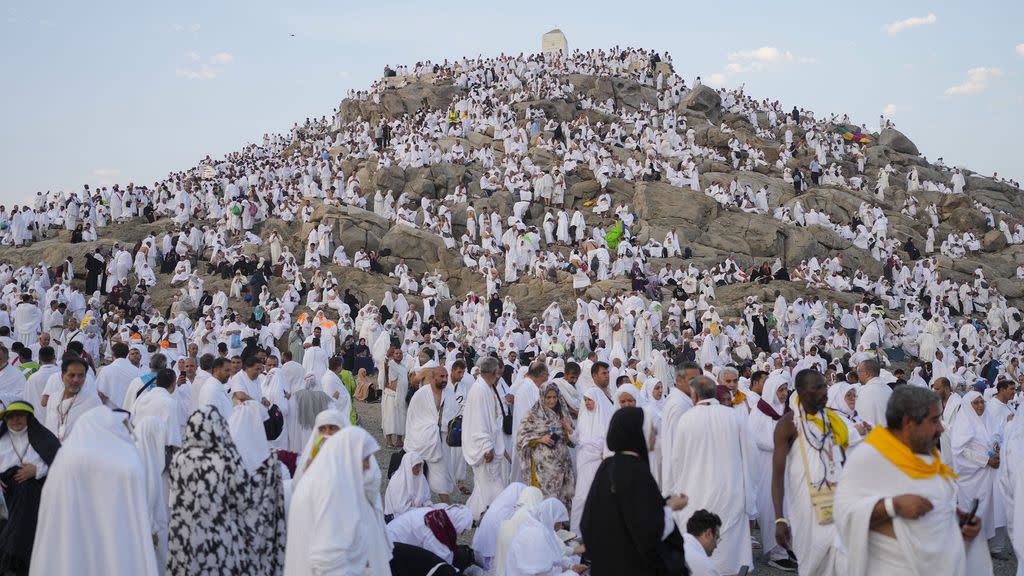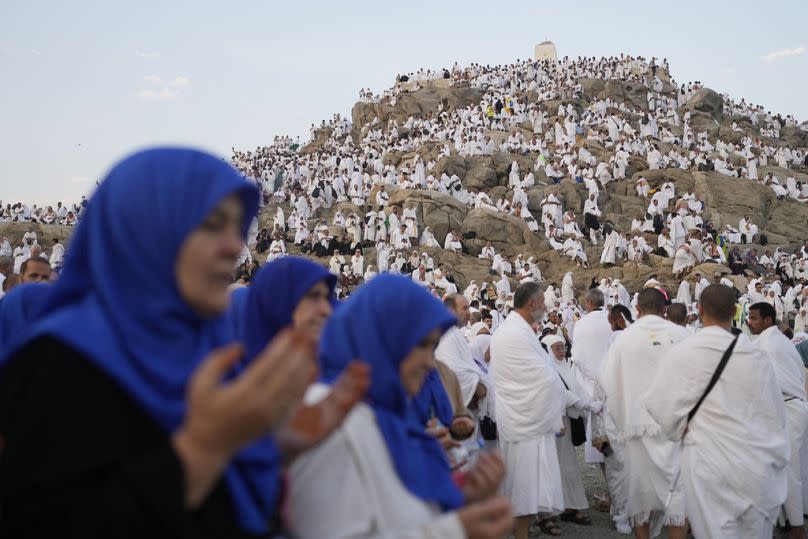Over two million Muslim pilgrims expected in Mecca for Hajj

Muslims from around the world congregated on Saturday at a sacred hill in Saudi Arabia for the climax of the Hajj pilgrimage.
Pilgrims gather for a ritual at Mount Arafat, known as the hill of mercy, for an intense day of worship and reflection.
The mount is considered sacred as it’s believed that Prophet Muhammad delivered his final speech, known as the Farewell Sermon, at the location 1,435 years ago. In the sermon, the prophet called for equality and unity among Muslims.
“It’s indescribable,” Ahmed Tukeyia, an Egyptian pilgrim, said of his experience arriving at a tent camp at the foot of Mount Arafat.

Hajj is one of the largest religious gatherings on earth. Saudi authorities expect the number of pilgrims this year to exceed 2 million, approaching pre-coronavirus pandemic levels.
For over two years pilgrimages were either restricted or cancelled as a result of the pandemic.
All Muslims are required to make the five-day Hajj at least once in their lives if they are physically and financially able to make the demanding pilgrimage.
The rituals largely commemorate the Quran’s accounts of Prophet Ibrahim, his son Prophet Ismail and Ismail’s mother Hajar — or Abraham and Ismael as they are named in the Bible.
This year’s Hajj came against the backdrop of the raging war in the Gaza Strip between Israel and Hamas, which has pushed the Middle East to the brink of a regional war between Israel and its allies on one side and Iran-backed militant groups on the other.
Palestinians in the coastal enclave of Gaza were not able to travel to Mecca for Hajj this year due to the closure of the Rafah crossing in May, when Israel extended its ground offensive to the strip’s southern city of Rafah.
Saudi authorities have said that the pilgrimage will not be politicised, and have staved off potential protests or chants about the war.
After Saturday’s worship in Arafat, pilgrims will travel a few kilometres to a site known as Muzdalifa to collect pebbles that they will use in the symbolic stoning of pillars representing the devil back in Mina.
Pilgrims then return to Mina for three days, coinciding with Eid al-Adha, when financially able Muslims around the world slaughter livestock and distribute the meat to poor people. Afterward, they return to Mecca for a final circumambulation, known as Farewell Tawaf.
Hajj is a notorious choke-point for crowds. In 2015, several thousands of pilgrims died after crowds surged, with Saudi officials not offering a final death toll.
In recent years, Saudi authorities have made significant efforts to improve access and avoid deadly accidents.
This year, tens of thousands of security personnel were deployed across the city, focusing on holy sites, in order to control crowds. The government also invested in a high-speed rail link to traffic people between holy sites in the city.


